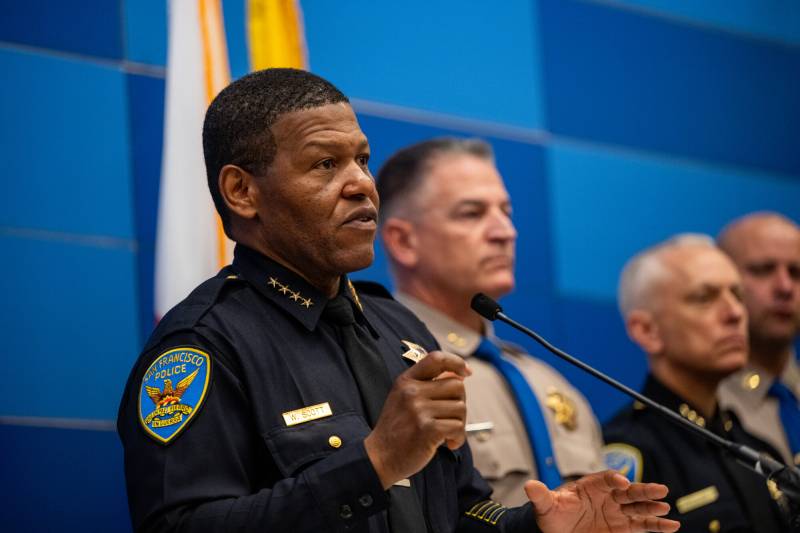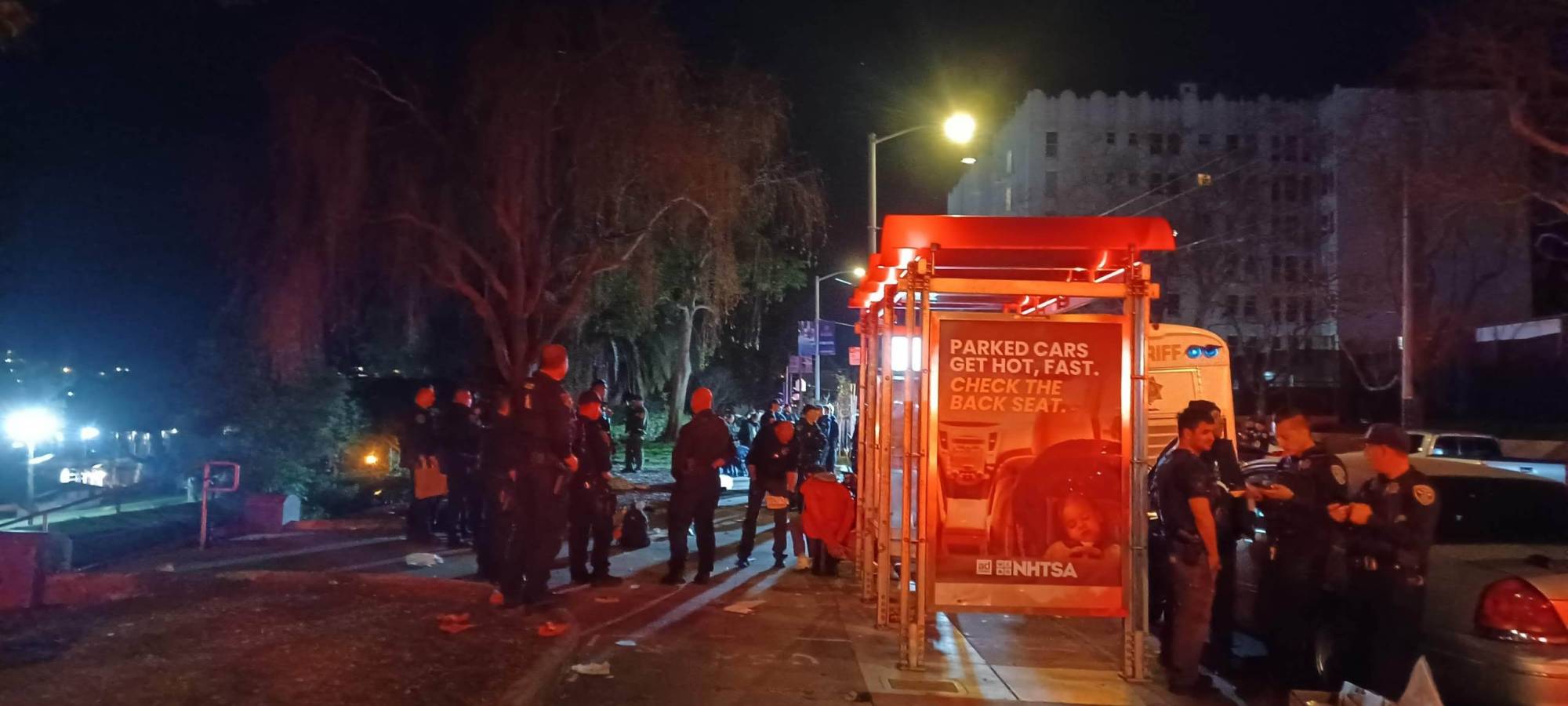After two late-night San Francisco police raids in recent days targeting drug users and dealers in public places, Police Chief Bill Scott said his officers will follow the problem where it’s the worst.
The raids netted nearly 90 arrests combined — most of them for non-drug-related violations — at Jefferson Square Park and the BART plaza at 16th and Mission streets. Both locations have had more people selling and using drugs as police cracked down on the Tenderloin, raising criticism from some residents and elected officials that the issue was merely being shuffled from one area to another.
Scott acknowledged the shifting nature of the issue but said the SFPD’s plan is to be consistent in arrests from neighborhood to neighborhood.
“Our strategy is to go where the problem is and try to prevent the problem from becoming a bigger problem,” he said at a Thursday evening public safety town hall meeting. “We cannot allow what happened in the Tenderloin to happen anywhere else in the city, where we had 20, 30, 40 drug dealers on multiple corners just having their way.”



